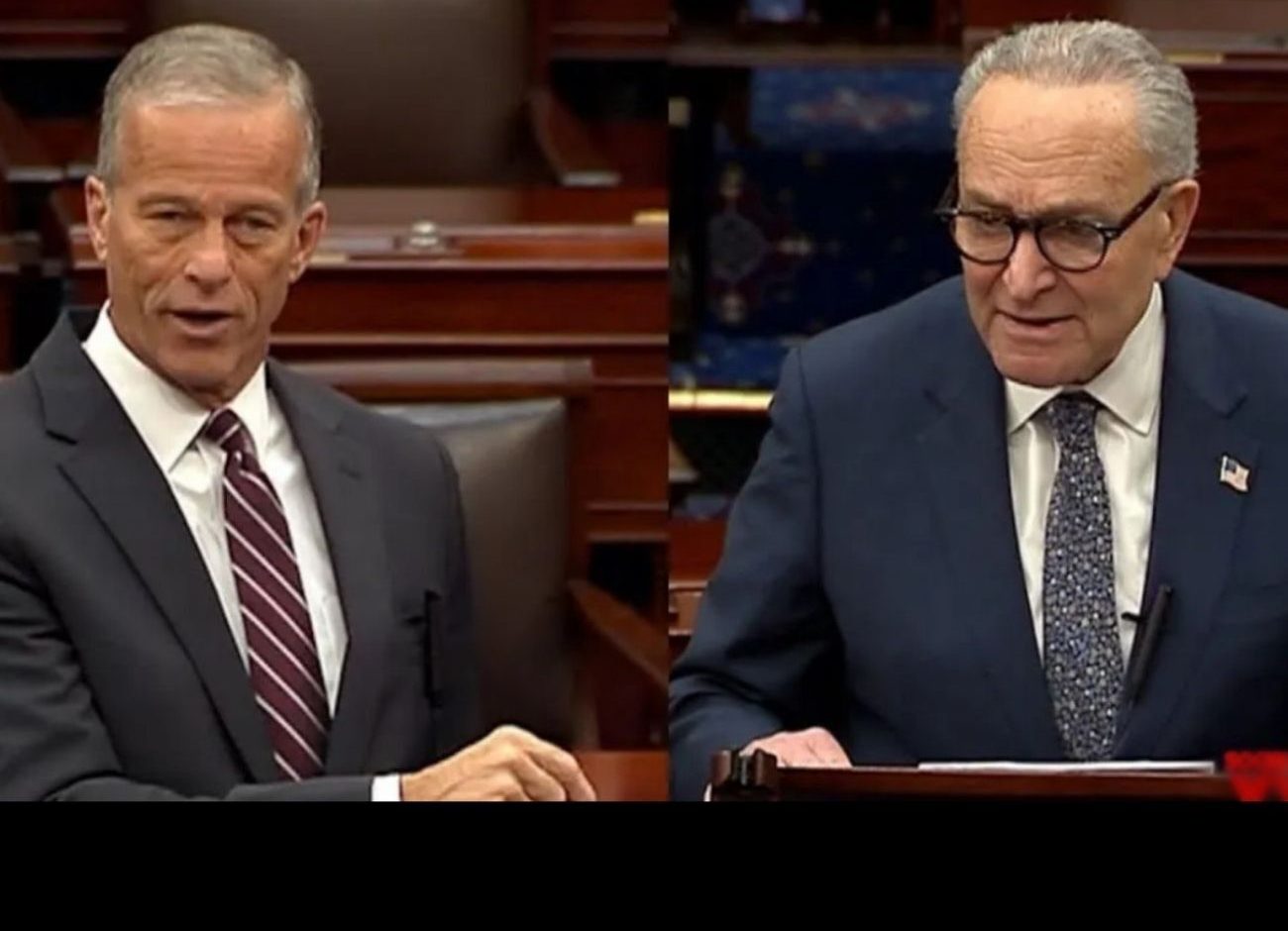Partisan Divide Deepens as Shutdown Stretches Into 35th Day
The federal government shutdown reached its 35th day on Tuesday as Senate Democrats once again blocked a Republican-backed measure to reopen agencies, marking the fourteenth failed attempt to break the impasse.
The latest vote underscores the entrenched gridlock between the two parties over spending priorities, health care funding, and the duration of a temporary funding extension. Lawmakers on both sides are under growing pressure from constituents and federal workers who have gone without pay for more than a month.
Thune: “It’s Gone On Long Enough”
Senate Majority Leader John Thune, R-S.D., told reporters that negotiations remain active but fragile. “I hope we’re close,” he said. “But the pressures, the cross-pressures that everybody’s feeling, are great. There are people who realize this has gone on long enough and there’s been enough pain inflicted on the American people. It’s time to end it.”
Thune said Republicans are willing to compromise on appropriations and funding adjustments tied to the Affordable Care Act. “The universe is pretty defined and established,” he added. “The question is whether or not Democrats take yes for an answer.”
He emphasized that a continuing resolution could be attached to the larger appropriations bill, extending the current funding deadline, which now looms in November. “We’ll see in the next few days where it goes,” Thune said, signaling cautious optimism.
Johnson: “Running Out of Clock”
House Speaker Mike Johnson, R-La., said the House would reconvene to vote on any Senate-passed measure, but he warned that time is slipping away. “If the Senate passes something, of course we’ll come back,” he said. “We’re running out of clock, obviously.”
Johnson expressed skepticism about a short-term December extension, arguing it risks a repeat of what he called “Christmas omnibus spending bills.” He said a January date would provide breathing room for broader negotiations. “Too many people have PTSD about December deals,” he quipped. “January makes sense if we can build consensus around it.”
Senators Voice Frustration
Sen. Markwayne Mullin, R-Okla., said he’s confident a resolution is near. “I’m pretty confident the shutdown ends this week,” he said. “It could be resolved Wednesday night, or more likely Thursday or Friday.”
Mullin blamed Democratic leadership for prolonging the standoff. “You can’t make sense out of crazy, and that’s where Chuck Schumer’s been this whole time,” he said. “But there are enough Democrats willing to vote for a deal if they’re allowed to.”
Republicans say Senate Majority Leader Chuck Schumer has maintained a hard line, insisting that any funding bill must include healthcare and social spending provisions rejected by the GOP.
Trump Weighs In
Former President Donald Trump, who remains an influential voice among Republicans, urged senators to invoke the so-called “nuclear option” — a procedural move to pass the bill with a simple majority instead of the 60 votes typically required.
Trump accused Democrats of pushing for “$1.5 trillion in new spending that includes healthcare funds for illegal immigrants,” a proposal he said “would hurt American citizens.” He urged Republican leaders to “stand firm and end the Schumer Shutdown.”
The 60-Vote Barrier
Under Senate rules, most legislation requires 60 votes to advance. With Democrats largely united, Republicans have fallen five votes short in each of the fourteen attempts to pass a short-term continuing resolution. Only three Democrats have broken ranks to support GOP measures since the shutdown began on October 1.
The prolonged standoff has left hundreds of thousands of federal employees furloughed or working without pay. Key services, from small business loans to national park operations, remain suspended.
Prospects for Compromise
Despite the repeated failures, aides say bipartisan discussions are intensifying behind the scenes. Lawmakers are exploring a short-term package to reopen agencies through early January while establishing a bipartisan framework for 2026 appropriations.
“There’s growing fatigue on both sides,” said one Senate staffer familiar with the talks. “The public pressure is mounting, and nobody wants to be blamed for a 40-day shutdown.”
Still, a deal remains elusive as Democrats demand healthcare and social program funding that Republicans argue would worsen the deficit. Republicans continue to link any reopening to spending restraints and adjustments to Obamacare.
Public Pressure Mounts
Polls show public frustration rising as federal services remain closed. Economists estimate that the shutdown could trim 0.2% from fourth-quarter GDP growth if it continues another week. Small business owners and contractors have voiced increasing anger over stalled federal payments.
“We’re talking about real people — mortgages, paychecks, families,” said Sen. Susan Collins, R-Maine. “This shouldn’t be about political leverage anymore.”
What Comes Next
Negotiators are expected to meet through the week as both parties weigh whether to extend funding into December or January. If no deal is reached soon, additional federal pay periods could be missed, further intensifying the political fallout.
As the stalemate drags on, each side is positioning to shift blame. Republicans have labeled the standoff the “Schumer Shutdown,” while Democrats point to Republican divisions and Trump’s influence.
For now, the government remains partially shuttered, and millions of Americans are left waiting to see whether Washington’s gridlock will finally break — or deepen further.

Emily Johnson is a critically acclaimed essayist and novelist known for her thought-provoking works centered on feminism, women’s rights, and modern relationships. Born and raised in Portland, Oregon, Emily grew up with a deep love of books, often spending her afternoons at her local library. She went on to study literature and gender studies at UCLA, where she became deeply involved in activism and began publishing essays in campus journals. Her debut essay collection, Voices Unbound, struck a chord with readers nationwide for its fearless exploration of gender dynamics, identity, and the challenges faced by women in contemporary society. Emily later transitioned into fiction, writing novels that balance compelling storytelling with social commentary. Her protagonists are often strong, multidimensional women navigating love, ambition, and the struggles of everyday life, making her a favorite among readers who crave authentic, relatable narratives. Critics praise her ability to merge personal intimacy with universal themes. Off the page, Emily is an advocate for women in publishing, leading workshops that encourage young female writers to embrace their voices. She lives in Seattle with her partner and two rescue cats, where she continues to write, teach, and inspire a new generation of storytellers.









